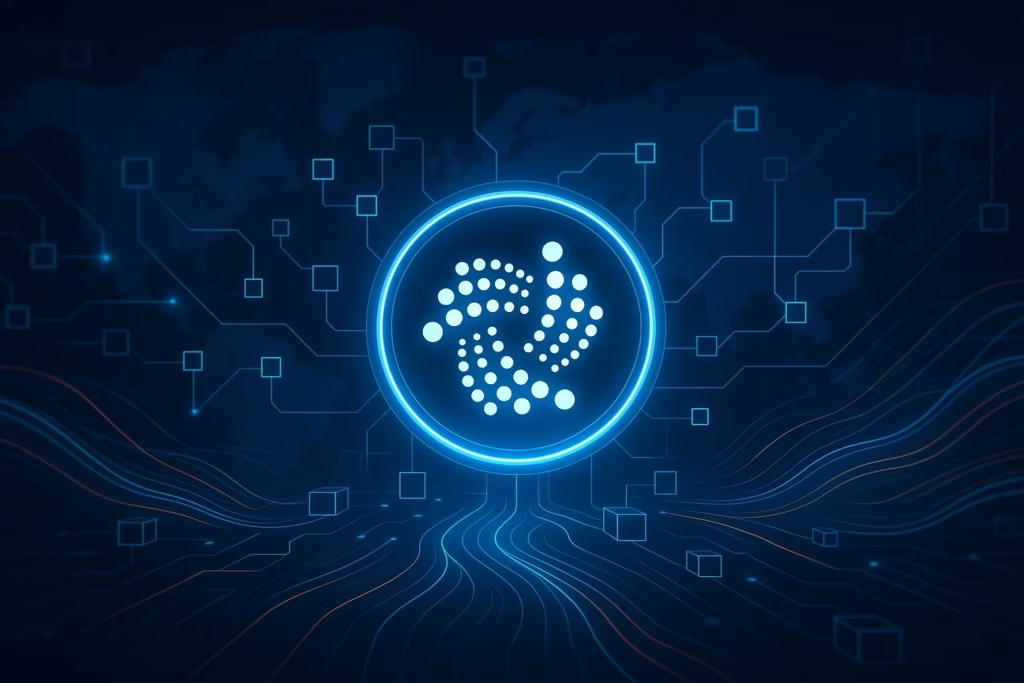- IOTA has partnered with Salus to tokenize critical minerals, targeting the $2.5 trillion global trade finance gap.
- The initiative uses identity, smart contracts, and data sovereignty to streamline supply chains and create transparent, secure digital trade records.
IOTA is stepping into the global trade finance arena, aiming to solve inefficiencies in cross-border payments, shipping, and documentation. Partnering with Salus, a next-generation trade finance platform, IOTA plans to revolutionize how critical minerals are financed and traded through real-world asset tokenization.
ALSO READ:IOTA Enables EV-to-Grid Energy Swaps to Cut Costs and Boost Reliability
IOTA Partnership for Global Trade Transformation
The collaboration focuses on addressing the $2.5 trillion trade finance gap, particularly in the minerals market. Minerals like lithium, cobalt, copper, and rare earth elements are vital for the global energy transition, but supply chain complexities and traditional financing methods often slow the process.
Salus brings blockchain-powered trade finance tools to the table, while IOTA provides the decentralized ledger technology. According to Dominik Schiener, co-founder of the IOTA Foundation, the goal is clear: “Real assets, real yield, real impact.”
IOTA Identity, Tokenization, and Data Sovereignty
At the heart of the partnership are three pillars: identity, tokenization, and data sovereignty. IOTA Identity enables unique digital identifiers for suppliers, transporters, containers, and even goods themselves. These decentralized identifiers (DIDs) ensure trust without relying on a central authority.
By digitizing trade documents such as warehouse receipts and bills of lading, IOTA and Salus are transforming them into secure, verifiable NFTs. This digitalization not only improves transparency but also creates an immutable, traceable record of ownership and transactions.
ALSO READ:IOTA Mainnet Hits 100 Days of Zero Downtime and 170 Million Transactions
Smart Contracts and Automated Trade Finance
Salus integrates IOTA Smart Contracts to handle essential trade finance functions, from ownership transfers to managing collateral. These contracts are directly linked to the Trade Worldwide Information Network (TWIN), ensuring real-time updates and auditability across borders.
The system aligns with global standards like the Model Law on Electronic Transferable Records (MLETR), ensuring compatibility in international trade.
Lower Barriers with IOTA’s Gas Station Model
One of the unique aspects of this initiative is IOTA’s Gas Station model. Here, transaction fees are covered by the platform operator, removing the need for participants to manage IOTA tokens themselves. This makes the process seamless for investors and suppliers, while maintaining the scalability and security of IOTA’s decentralized network.
RELATED:IOTA Launches Gas Station v0.2 With Six New Web3 Features
Driving the Future of Trade
By combining Salus’s trade finance platform with IOTA’s ledger, smart contracts, and tokenization technology, this partnership could reshape how critical minerals are traded globally. It not only addresses inefficiencies in traditional systems like SWIFT but also provides a transparent, cost-effective, and scalable model for the future of trade finance.
ALSO READ:IOTA Security Strengthens with Keystone Wallet Firmware Update and Rumored Custom Edition
DISCLAIMER:
The views and opinions expressed herein are solely those of the author and do not necessarily reflect the views of the publisher. The publisher does not endorse or guarantee the accuracy of any information presented in this article. Readers are encouraged to conduct further research and consult additional sources before making any decisions based on the content provided.

